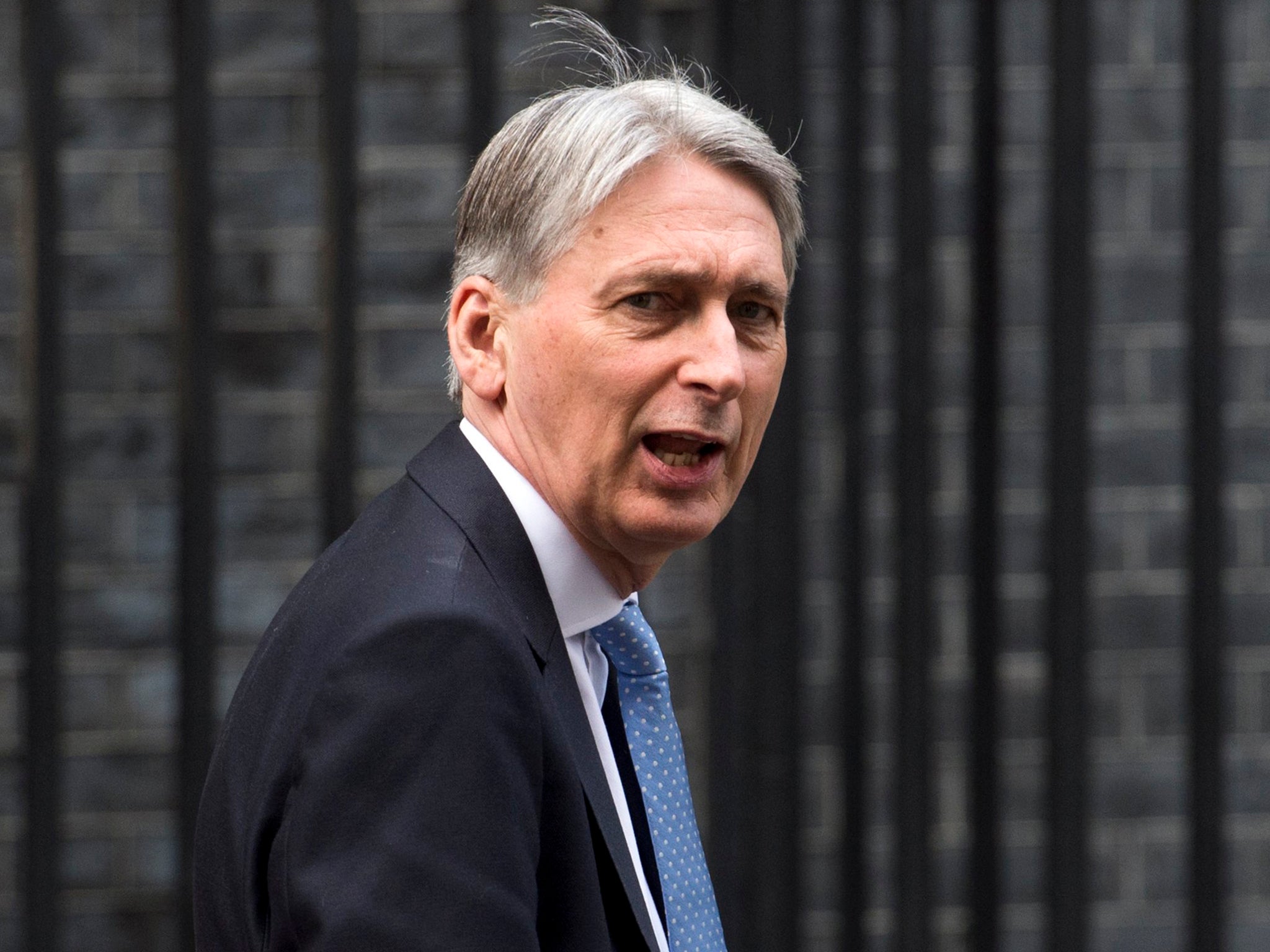'Austerity not over', warns Institute for Fiscal Studies ahead of Chancellor Philip Hammond's Spring Statement
The IFS stressed an improvement in public borrowing did not mean cuts already pencilled in for benefits or public spending would be cancelled

Austerity is “far from over”, despite the fact that the Chancellor will unveil an improved outlook for the public finances in the Spring Statement next week, the Institute for Fiscal Studies has warned.
Public borrowing this financial year has been undershooting the forecasts of the Office for Budget Responsibility (OBR) made around the November Budget, due to stronger than expected income tax receipts, and this may give Philip Hammond an extra £10bn of leeway at next Tuesday’s announcement.
The latest public borrowing data shows that on a 12-month rolling sum basis, the current budget – which excludes capital investment – actually went into surplus in November 2017. Achieving balance on this deficit measure was George Osborne’s original 2010 target.
However, the IFS stressed on Friday that this improvement did not mean the pain of the cuts already pencilled in for benefits or public spending could – or were likely to be – cancelled simply due to the recent improvement.
“On current policy, ‘austerity’ is far from over,” said Carl Emmerson, deputy director of the IFS.
“Higher inflation means that this April, the freeze in the nominal value of many working-age social security benefits will bite much harder than before.
“The continued rollout of cuts to tax credits and of universal credit will also hit many low-income families. Meanwhile, cuts in many areas of public service spending are set to continue.
“Delivering a [overall] budget surplus by the mid-2020s, which the Government is currently committed to, will remain far from easy.”
The National Audit Office warned earlier this week that many councils are close to financial breaking point, due to a 50 per cent cut in their central government grants since 2010, while pressure on social care budgets has soared.
Mr Emmerson from the IFS said that “before the champagne corks start popping” at lower public borrowing forecasts next week, it was important to recall that Mr Osborne had tightened his deficit reduction target in 2015 to a £10bn overall Budget surplus by 2019-20, which is still likely to be significantly missed.
“A large part of this deterioration was ascribed by the OBR in 2016 to the likely effects of the decision to leave the European Union,” Mr Emmerson noted.
The IFS’s downbeat message was echoed by the Centre for Policy Studies think tank.
“The task of shoring up the public finances is not yet complete – and Britain’s productivity levels are still well below where they could or should be,” said Robert Colville, the CPS’s director.
“It is addressing these issues that should be the Chancellor’s priority,”
Subscribe to Independent Premium to bookmark this article
Want to bookmark your favourite articles and stories to read or reference later? Start your Independent Premium subscription today.

Join our commenting forum
Join thought-provoking conversations, follow other Independent readers and see their replies